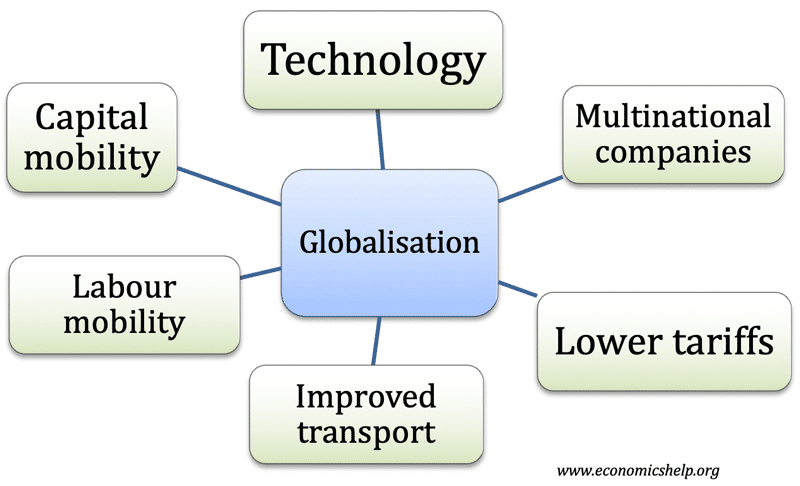
The period of globalization, between 19, is unique because global trade grew very fast. Let us start, however, with a quick primer on trade and what economists mean when they are talking about globalization. There are many different ways to examine how globalization has improved businesses, living standards and the performance of the entire economy.

Trade is not growing much anymore – and, for the West as well as the Rest, that should be a great cause of concern, not for jubilation. Since the crisis, however, globalization has stalled – and global trade has become a casualty of increasing protectionism around the world and the weak macro-economic performance of the West. Contrary to much commentary, it helped to put a higher premium on human capital and giving firms new chances to employ the staff they need to compete successfully. Globalization was a great force of spreading new technologies and providing new economic opportunity to labour in both developed and developing economies. Its main conclusion is that the fast increase in global trade in the three decades before the financial crisis substantially improved Western economies and the living standards of their citizens.
FIVE MAJOR DRIVERS OF GLOBALIZATION FREE
It will marshal a great amount of economic evidence, and combine economic research with examples from the real world that supports the age-old consensus about free trade. This study will take a thorough view on how Western economies have fared in the age of globalization. New output is often greener and thrive on new technology, leading to positive change also outside the economy. Moreover, the new jobs that are created tend to be better rewarded and come with better working conditions. While open economies always are subject to new competition and structural changes that affects firms and jobs, the flip side of the coin is that the same economic processes create a lot of new jobs and business opportunities, and – ultimately – improve the living standards. The chief one is that established fact and known economic patterns don’t support skepticism about the benefits of trade and cross-border investment. There are deep flaws in this view of globalization. For some, that is also the main source of political anger in the West: recent revolts in European and American elections have been the way for “the losers of free trade” to avenge the faults of the “pro-globalization establishment”. China, in other words, hollowed out the manufacturing sector in Europe and North America.

Such arguments often start in China’s remarkably fast trade growth since the late 1990s, and it concludes that, while the period from then to now obviously has raised living standards in China and other emerging economies, it has happened at the expense of blue-collar workers in developed economies. Trump, “other countries have taken advantage of America” and these types of opinions feed on growing doubts about globalization delivering better living standards for people in Western economies. There is rather a proliferating suspicion that globalization may have been great for some countries, but not for others, and that it is affluent countries in the West that have drawn the shortest straw. There is a new anxiety running through Western societies that challenges previous perceptions about freer trade as a win-win for every country. Now, however, we are at risk of having a backlash against globalization and all the opportunities that increasing economic freedom has provided us with over the past decades. Globalization has been a boon to businesses, consumers and the Western economy as a whole. Globalization has improved the quality of management in firms and the working conditions for people.ĮCIPE greatly acknowledges the support from the Confederation of Swedish Enterprise for this study.Globalization has helped to reduce gender wage discrimination and giving new opportunities to women.


Globalization has enabled firms to specialize – and to increase the intensity of R&D, innovation and capital in their output.Globalization has boosted output in the Western economy


 0 kommentar(er)
0 kommentar(er)
